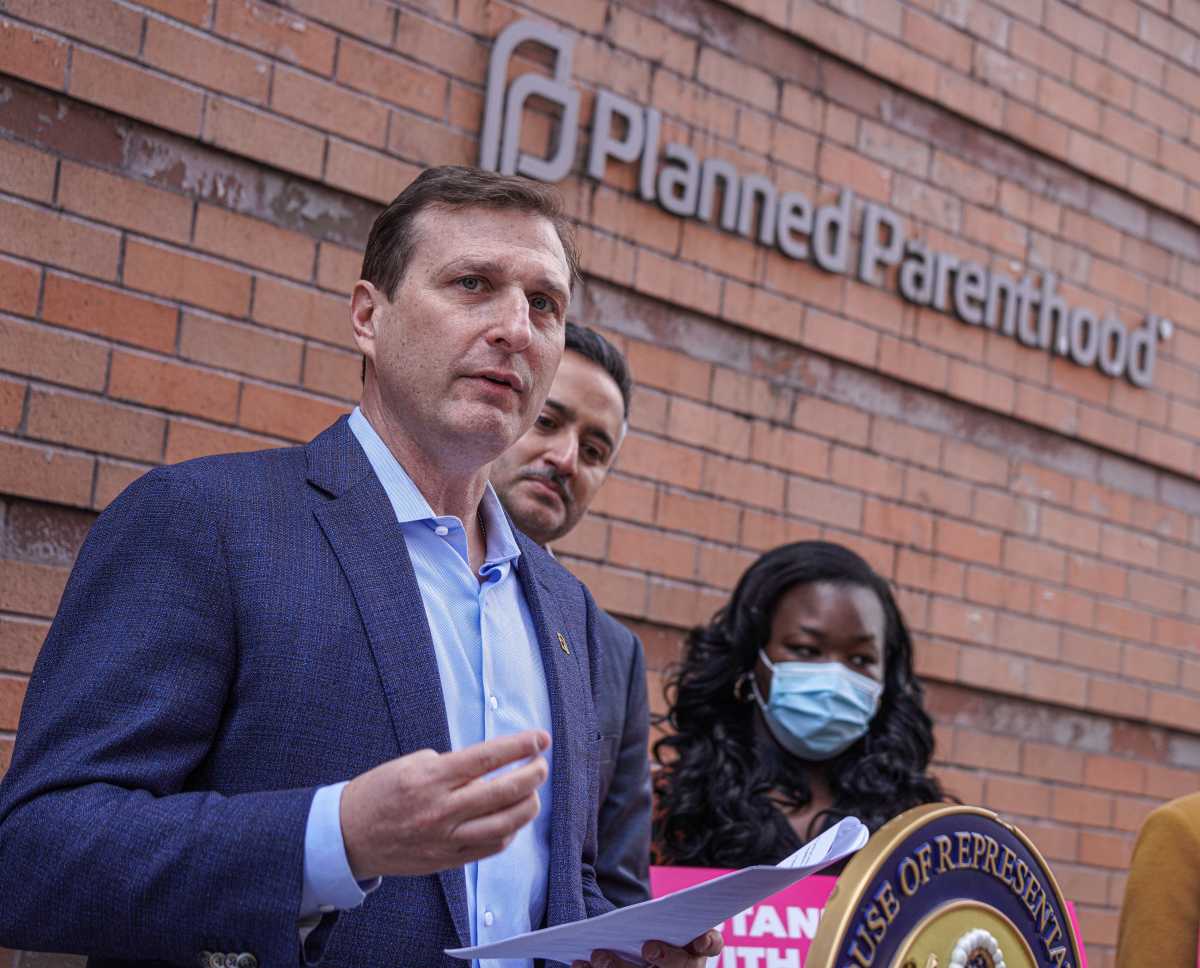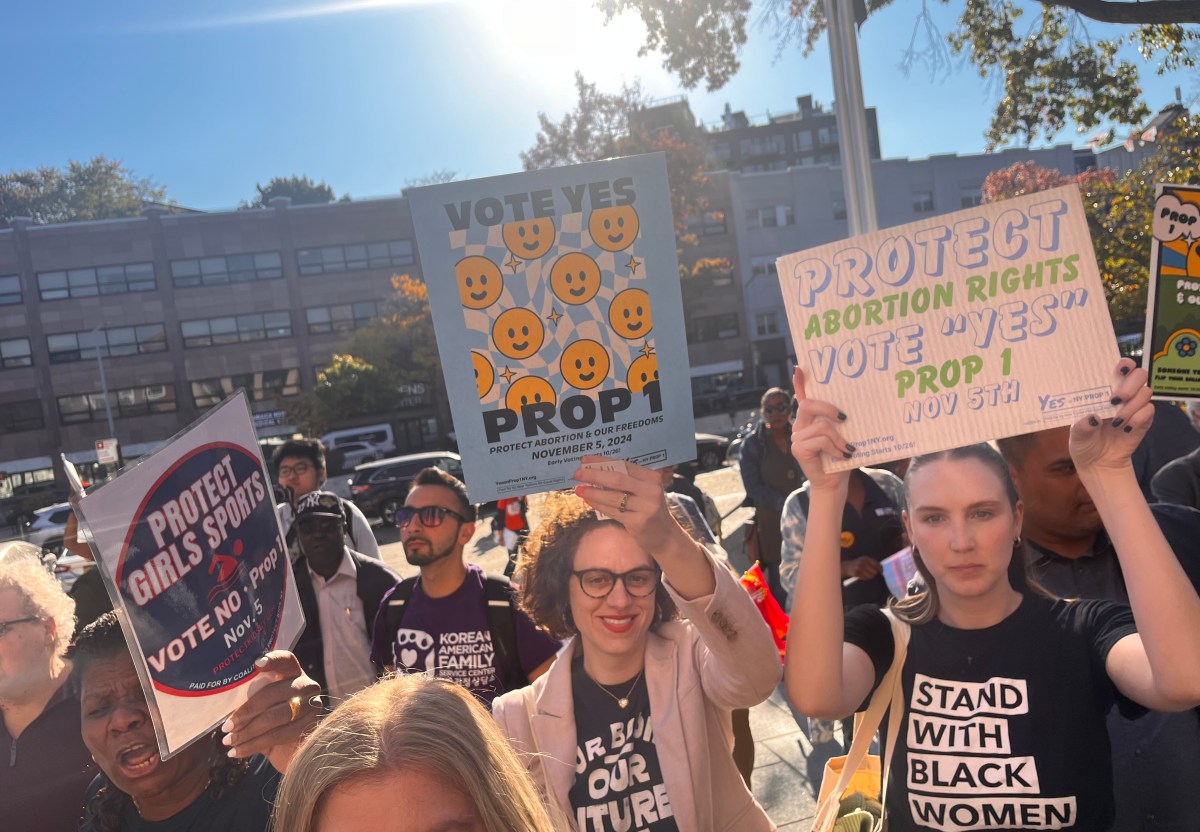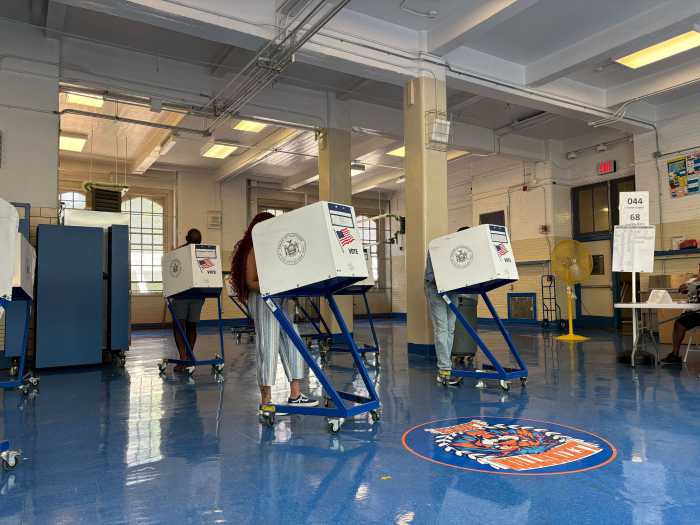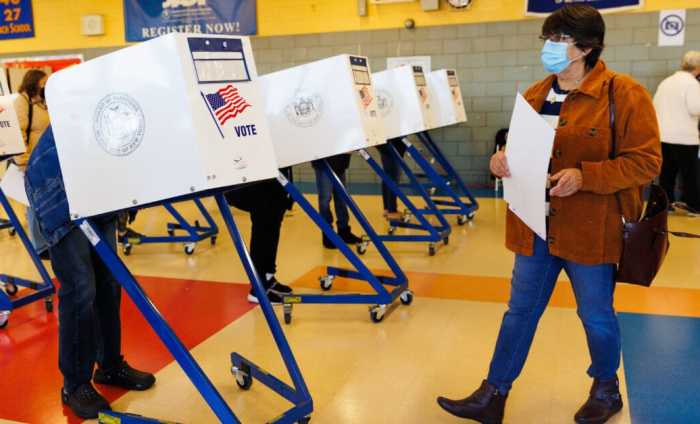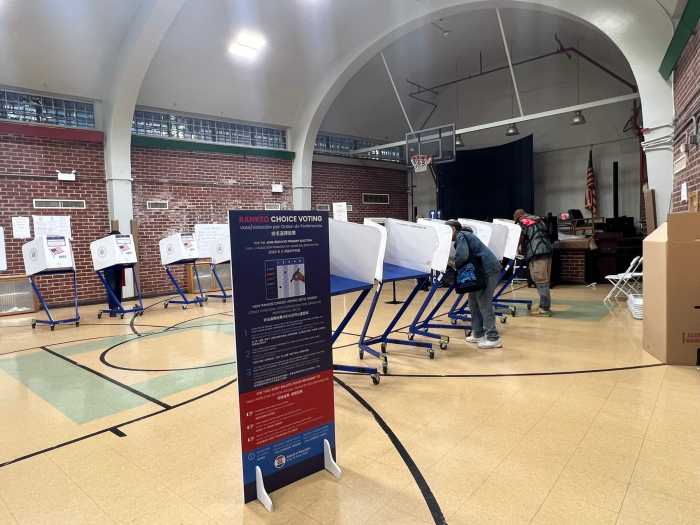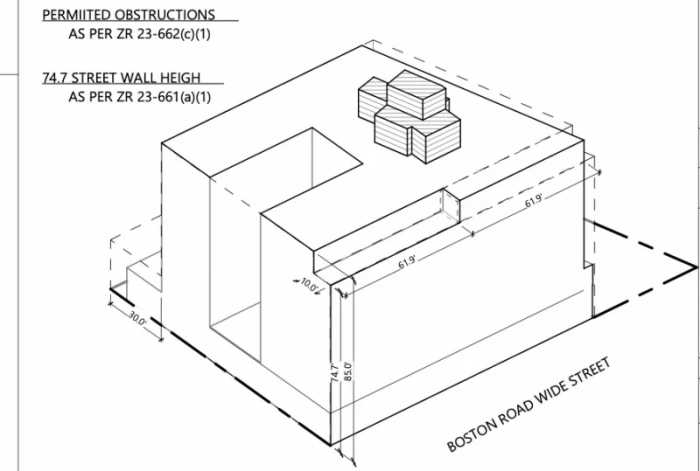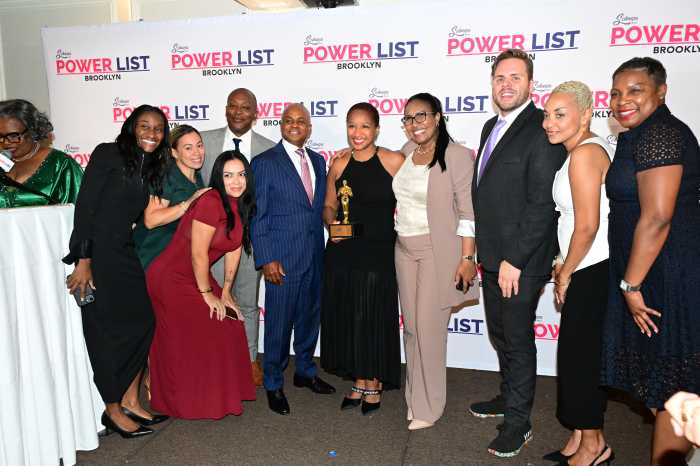Pro-choice advocates are celebrating on Wednesday as New Yorkers overwhelmingly voted to protect the right to abortion not only in the city but statewide by effectively enshrining it into NYS law.
But with that celebration comes concern. As Donald Trump swept the nation with a popular vote and electoral college victory into the White House, some women’s rights groups in NYC question how or if his presidency will impact abortion rights locally and across the country.
What is Proposition 1?
Proposition 1, also known as the Equal Rights Amendment (ERA), will codify abortion rights into the state’s Constitution. It only needed 50% of the vote to pass, which it received Tuesday night on Election Day.
The ERA has other aspects, too. It protects against government discrimination based on ethnicity, national origin, age, sexual orientation, gender, and pregnancy status.
Representatives at Planned Parenthood of Greater New York Action Fund are celebrating the ERA and highlighting what it means for New York.
“With the passage of this historic amendment, New Yorkers cemented their fundamental rights and reproductive freedoms in the state constitution so they are permanently protected and cannot be easily rolled back by out-of-touch politicians in the future,” said Dipal Shah, executive director of the organization.
He added that the ERA is not only historic for those seeking an abortion, but “closes gaps” in the state Constitution regarding discrimination.
“The ERA is not only historic for those seeking abortion care, it also prevents the criminalization of New Yorkers who have a miscarriage, which has tragically happened in other states since the Supreme Court wrongfully overturned Roe vs. Wade,” he said. “And it doesn’t stop there. The ERA closes gaps in the state constitution to make sure that no New Yorker can be discriminated against by the government, regardless of gender, age, ethnicity, pregnancy status, disability status, national origin, or whether someone is LGBTQ+.”
But still, Shah and other pro-choice advocates remain cautious.
“This win comes at a critical time,” Shah said. “Given the challenging and uncertain national landscape, we know now more than ever, we must continue to fight for a future where reproductive freedom and equity are realities for all.”
Sonia Ossorio, executive director of the National Organization for Women NYC, called Prop 1 a “bright spot” in the election process.
“The bright spot of this election cycle is that New Yorkers decisively voted to put women’s lives front and center and enshrine the right to abortion in our state constitution,” she said. “This is a victory for women here and it’s especially precinct on the heels of a second Trump era that promises to continue to dismantle women’s rights, freedoms and healthcare.”
What could a Trump presidency mean for abortion access?
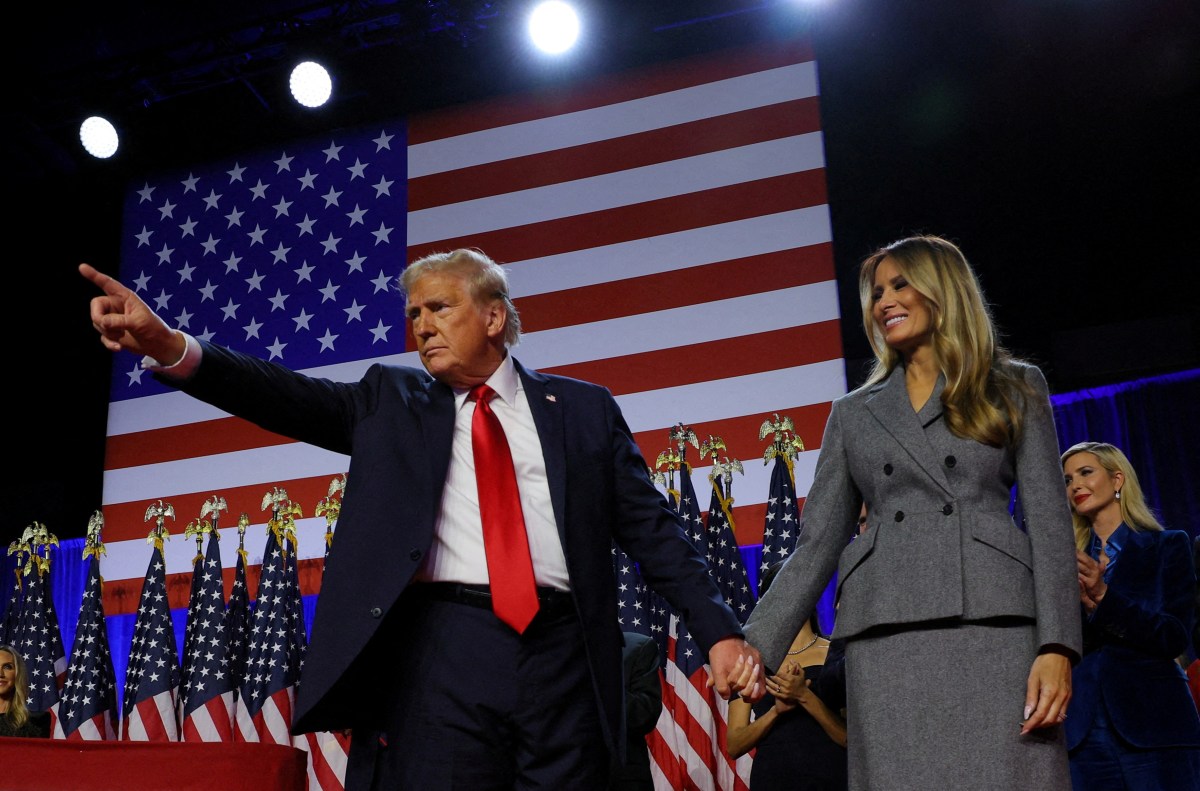
Trump has historically been in favor of turning abortion decisions back to the states, which he accomplished via three Supreme Court justice appointments during his first term — which turned the highest court in the land to the political right.
In 2022, the conservative-dominated Supreme Court struck down the landmark Roe vs. Wade ruling, ending the national right to an abortion.
That June, New York lawmakers introduced the ERA as a state constitution amendment designed to enshrine women’s reproductive rights into state law.
Elisabeth Smith, director of state policy and advocacy at the Center for Reproductive Rights, based in NYC, called the passing of the ERA a victory for New York.
“New Yorkers have spoken loud and clear, voting to further protect their reproductive autonomy,” she said. “This victory sends a powerful message—in New York, everyone has the right to make their own pregnancy decisions, and that includes abortion.”
But some groups opposed the ERA, advocating for New Yorkers to vote ‘no‘ on the amendment. The New York State Republican Party said advocates of the law “falsely claim” Prop 1 is needed to protect abortion.
“New York legalized abortion in 1970 and is not under any threat of repeal,” the state GOP notes on its website. “Further, the word abortion does not appear in the amendment language as it does in other U.S. state proposals protecting abortion rights. Instead, it uses broad terms (‘pregnancy outcomes” and “reproductive autonomy”) leaving much to judicial interpretation.”
As much as the Center for Reproductive Rights applauded the ERA, it feels differently about a Trump presidency.
According to the organization’s president and CEO, Nancy Northup, the former president’s election win is a “deadly threat” to reproductive rights throughout the country.
“Anti-rights extremists will soon be back in charge of the White House and the U.S. Senate, wielding power to the detriment of vulnerable populations and seeking to undermine decades of progress on gender equality, a linchpin of which is the ability of individuals to make decisions about their reproductive lives and have access to reproductive health care,” she said.
Trump has had a history of shifting views on abortion, though he has held steadfast on letting states decide. If Republicans gain full control of Congress, some are concerned it would pass, and Trump would sign into law, a national abortion ban.
Northup explained that overturn of Roe vs. Wade resulted in an abortion ban or near-ban in 17 states.
“In vast swaths of the South and Midwest, patients are forced to cross multiple state lines to get care, but many lack the means to do so,” she said. “Obstetricians are fleeing states where abortion is banned because they cannot properly care for their patients, including those experiencing severe pregnancy complications.”
‘Bodily autonomy is under threat’
In New York, where lawmakers now codified the ERA, it seems unlikely abortion protections could be overturned.
Meanwhile, Northup said a second Trump administration can prove differently nationwide.
“It will seek to stop the availability of medication abortion by mail, which has been a lifeline in post-Roe America,” she said. “ It will attempt to gag all organizations, including U.S.-based ones, from advocating for abortion law reform or providing abortion care abroad, even with their non-U.S. funds. It will push policies designed to disempower reproductive and human rights organizations while aiding their anti-rights counterparts.”
Alexia Korberg, executive director of Her Justice, said the ERA is a “vital step towards protecting autonomy, safety and the right of each of us to define our own life trajectory” in New York.
Korberg added that despite the protections in New York, “bodily autonomy is increasingly under threat” at the federal level.
“Her Justice has worked with survivors of intimate partner violence for over 30 years,” they said. “We know all too well what studies show: that pregnancy is a particularly vulnerable period for women in abusive relationships, with markedly increased risk of violence. And we have seen time and again how abusers exploit pregnancy to control their partners—through financial dependence, coercion, or isolation—and the devastating consequences for women who become legally tethered to their abusers through childbirth. These risks are even more acute for people of color and those living in poverty, who face compounding barriers to safety and healthcare due to systemic inequities.”
Korberg reiterated the protections that the ERA provides.
“Prop 1 strengthens critical protections for women and transgender people, so that, at least in New York, each of us is free to choose our own path,” they said.



